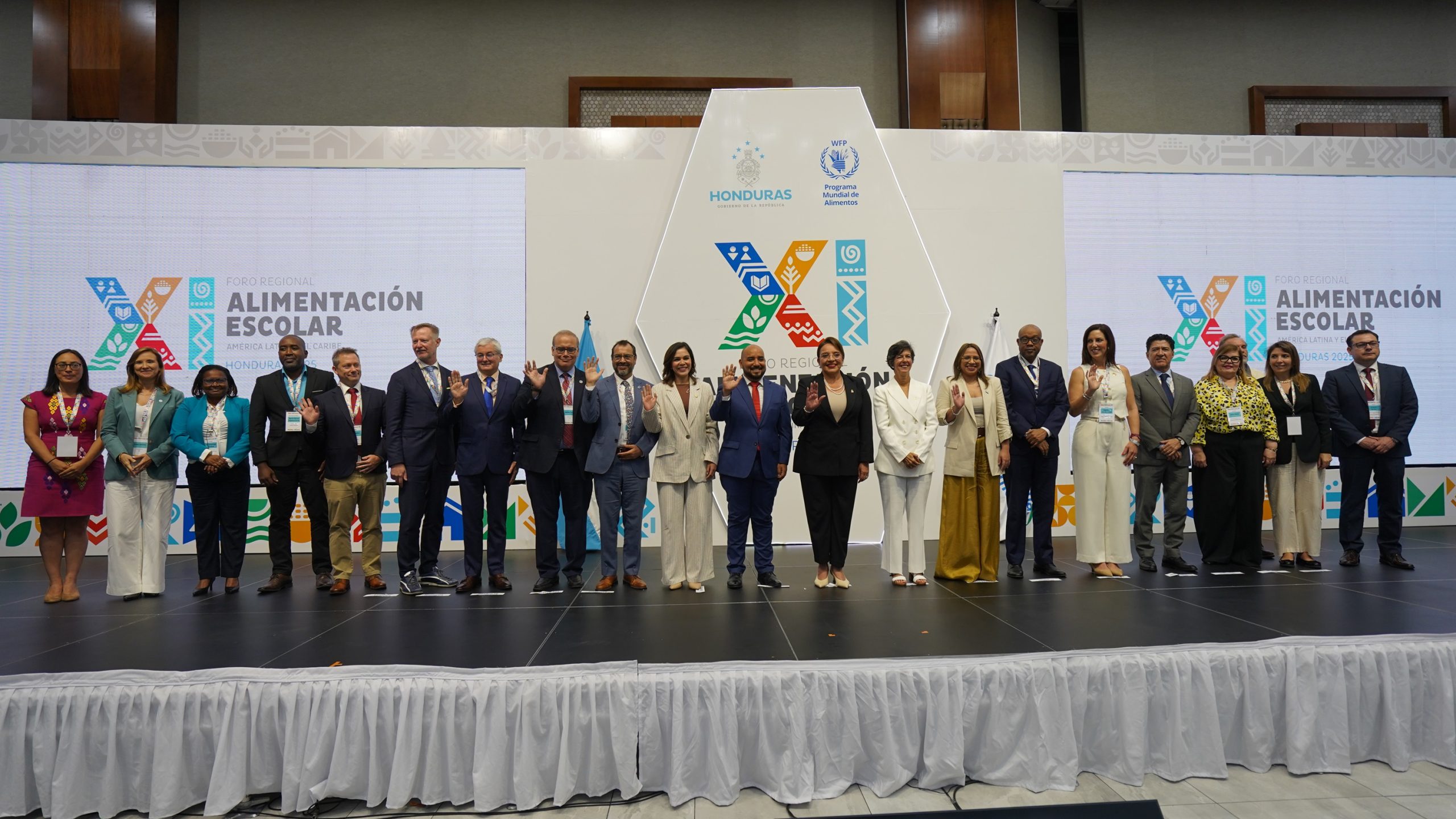
Around 200 participants from 18 countries, including ministers of state, representatives of civil society, international financial institutions and the United Nations, met in Honduras from 15 to 17 July at the XI Regional School Feeding Forum for Latin America and the Caribbean, co-organised by the Government of Honduras and the United Nations World Food Programme (WFP).
During the three-day Forum, participants debated the value of school feeding as an instrument of social protection, discussed the role of schools as catalysts for sustainability and resilience, and highlighted the importance of school feeding for indigenous peoples.
The Forum was a space for exchanging experiences and preparing together for the 2nd World Summit on School Feeding, which will be held in Fortaleza (Brazil) on 18 and 19 September 2025.
Brazilian participation
The Brazilian government was present to share experiences of the National School Feeding Programme (PNAE) and to defend school feeding as one of the most effective strategies in the fight against hunger. Among the panelists were Saulo Ceolin, coordinator of the Global Alliance against Hunger and Poverty at the Brazilian Ministry of Foreign Affairs, and Karine Santos, PNAE coordinator, representing the National Education Development Fund (FNDE).
Saulo Ceolin stressed in his speech that Brazil recognizes school feeding as a strategic public policy that guarantees not only food and nutritional security, but also staying in school, generating jobs and boosting the local market.
“For more than 15 years, one of the pillars of our international cooperation has been school feeding. Much of the Brazilian Cooperation Agency’s work focuses on promoting school feeding and local purchases from family farming, precisely because of all these aspects and the recognition of the human right to adequate food. That’s why we advocate a structuring policy that guarantees universal access to school meals for children,” he said.
Karine Santos emphasized that in Brazil, school feeding is an issue that involves several ministries, in addition to Education, such as Health and Agrarian Development. “A concrete example of this joint action is the Interministerial Chamber for Food and Nutritional Security, which has 23 ministries that act, reflect and propose improvements in food and nutritional security programmes.”
The WFP Centre of Excellence against Hunger in Brazil accompanied the debates, represented by Programme Officer Maria Giulia Senesi.
Latin America and the Caribbean
Latin America and the Caribbean has been a pioneering region in scaling up school feeding programmes as a response to the major challenges facing people and the planet – from child nutrition to building food systems resilient to climate change.
Government school feeding programmes in Latin America and the Caribbean reach more than 80 million children – second only to the South Asian region, according to the WFP’s flagship ‘State of the World’s School Feeding’ report 2022 – with a collective annual investment of approximately 7.6 billion dollars.
These governments are increasingly opting to use locally produced food in school meals, stimulating regional markets and including seasonal foods on menus.
WFP support for national efforts
WFP collaborates with governments in the region to strengthen national school feeding initiatives, with support adapted to local contexts. Examples include transforming shipping containers into kitchens in El Salvador; providing lunches for children affected by violence in Haiti; connecting farms with neighboring schools in Guatemala; and promoting enriched rice in schools in Peru.
“We serve students in vulnerable areas with vital support – children affected by drought, environmental degradation and social exclusion, from the Dry Corridor to the Andes and the Amazon,” said Lola Castro, WFP’s regional director for Latin America and the Caribbean.




